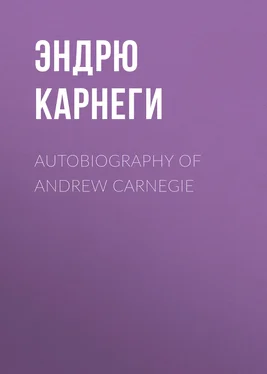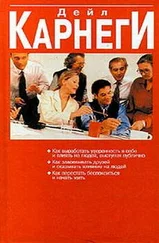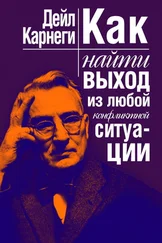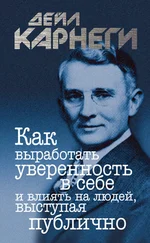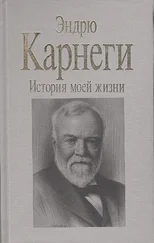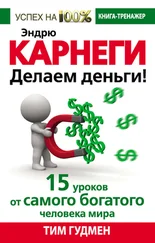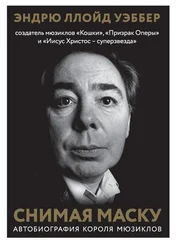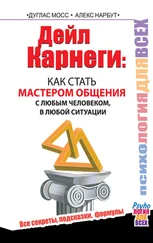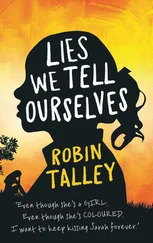Эндрю Карнеги - Autobiography of Andrew Carnegie
Здесь есть возможность читать онлайн «Эндрю Карнеги - Autobiography of Andrew Carnegie» — ознакомительный отрывок электронной книги совершенно бесплатно, а после прочтения отрывка купить полную версию. В некоторых случаях можно слушать аудио, скачать через торрент в формате fb2 и присутствует краткое содержание. Жанр: Биографии и Мемуары, foreign_antique, на английском языке. Описание произведения, (предисловие) а так же отзывы посетителей доступны на портале библиотеки ЛибКат.
- Название:Autobiography of Andrew Carnegie
- Автор:
- Жанр:
- Год:неизвестен
- ISBN:нет данных
- Рейтинг книги:3 / 5. Голосов: 1
-
Избранное:Добавить в избранное
- Отзывы:
-
Ваша оценка:
- 60
- 1
- 2
- 3
- 4
- 5
Autobiography of Andrew Carnegie: краткое содержание, описание и аннотация
Предлагаем к чтению аннотацию, описание, краткое содержание или предисловие (зависит от того, что написал сам автор книги «Autobiography of Andrew Carnegie»). Если вы не нашли необходимую информацию о книге — напишите в комментариях, мы постараемся отыскать её.
Autobiography of Andrew Carnegie — читать онлайн ознакомительный отрывок
Ниже представлен текст книги, разбитый по страницам. Система сохранения места последней прочитанной страницы, позволяет с удобством читать онлайн бесплатно книгу «Autobiography of Andrew Carnegie», без необходимости каждый раз заново искать на чём Вы остановились. Поставьте закладку, и сможете в любой момент перейти на страницу, на которой закончили чтение.
Интервал:
Закладка:
In religious matters we were not much hampered. While other boys and girls at school were compelled to learn the Shorter Catechism, Dod and I, by some arrangement the details of which I never clearly understood, were absolved. All of our family connections, Morrisons and Lauders, were advanced in their theological as in their political views, and had objections to the catechism, I have no doubt. We had not one orthodox Presbyterian in our family circle. My father, Uncle and Aunt Aitken, Uncle Lauder, and also my Uncle Carnegie, had fallen away from the tenets of Calvinism. At a later day most of them found refuge for a time in the doctrines of Swedenborg. My mother was always reticent upon religious subjects. She never mentioned these to me nor did she attend church, for she had no servant in those early days and did all the housework, including cooking our Sunday dinner. A great reader, always, Channing the Unitarian was in those days her special delight. She was a marvel!
During my childhood the atmosphere around me was in a state of violent disturbance in matters theological as well as political. Along with the most advanced ideas which were being agitated in the political world—the death of privilege, the equality of the citizen, Republicanism—I heard many disputations upon theological subjects which the impressionable child drank in to an extent quite unthought of by his elders. I well remember that the stern doctrines of Calvinism lay as a terrible nightmare upon me, but that state of mind was soon over, owing to the influences of which I have spoken. I grew up treasuring within me the fact that my father had risen and left the Presbyterian Church one day when the minister preached the doctrine of infant damnation. This was shortly after I had made my appearance.
Father could not stand it and said: "If that be your religion and that your God, I seek a better religion and a nobler God." He left the Presbyterian Church never to return, but he did not cease to attend various other churches. I saw him enter the closet every morning to pray and that impressed me. He was indeed a saint and always remained devout. All sects became to him as agencies for good. He had discovered that theologies were many, but religion was one. I was quite satisfied that my father knew better than the minister, who pictured not the Heavenly Father, but the cruel avenger of the Old Testament—an "Eternal Torturer" as Andrew D. White ventures to call him in his autobiography. Fortunately this conception of the Unknown is now largely of the past.
One of the chief enjoyments of my childhood was the keeping of pigeons and rabbits. I am grateful every time I think of the trouble my father took to build a suitable house for these pets. Our home became headquarters for my young companions. My mother was always looking to home influences as the best means of keeping her two boys in the right path. She used to say that the first step in this direction was to make home pleasant; and there was nothing she and my father would not do to please us and the neighbors' children who centered about us.
My first business venture was securing my companions' services for a season as an employer, the compensation being that the young rabbits, when such came, should be named after them. The Saturday holiday was generally spent by my flock in gathering food for the rabbits. My conscience reproves me to-day, looking back, when I think of the hard bargain I drove with my young playmates, many of whom were content to gather dandelions and clover for a whole season with me, conditioned upon this unique reward—the poorest return ever made to labor. Alas! what else had I to offer them! Not a penny.
I treasure the remembrance of this plan as the earliest evidence of organizing power upon the development of which my material success in life has hung—a success not to be attributed to what I have known or done myself, but to the faculty of knowing and choosing others who did know better than myself. Precious knowledge this for any man to possess. I did not understand steam machinery, but I tried to understand that much more complicated piece of mechanism—man. Stopping at a small Highland inn on our coaching trip in 1898, a gentleman came forward and introduced himself. He was Mr. MacIntosh, the great furniture manufacturer of Scotland—a fine character as I found out afterward. He said he had ventured to make himself known as he was one of the boys who had gathered, and sometimes he feared "conveyed," spoil for the rabbits, and had "one named after him." It may be imagined how glad I was to meet him—the only one of the rabbit boys I have met in after-life. I hope to keep his friendship to the last and see him often. [As I read this manuscript to-day, December 1, 1913, I have a very precious note from him, recalling old times when we were boys together. He has a reply by this time that will warm his heart as his note did mine.]
With the introduction and improvement of steam machinery, trade grew worse and worse in Dunfermline for the small manufacturers, and at last a letter was written to my mother's two sisters in Pittsburgh stating that the idea of our going to them was seriously entertained—not, as I remember hearing my parents say, to benefit their own condition, but for the sake of their two young sons. Satisfactory letters were received in reply. The decision was taken to sell the looms and furniture by auction. And my father's sweet voice sang often to mother, brother, and me:
"To the West, to the West, to the land of the free,
Where the mighty Missouri rolls down to the sea;
Where a man is a man even though he must toil
And the poorest may gather the fruits of the soil."
The proceeds of the sale were most disappointing. The looms brought hardly anything, and the result was that twenty pounds more were needed to enable the family to pay passage to America. Here let me record an act of friendship performed by a lifelong companion of my mother—who always attracted stanch friends because she was so stanch herself—Mrs. Henderson, by birth Ella Ferguson, the name by which she was known in our family. She boldly ventured to advance the needful twenty pounds, my Uncles Lauder and Morrison guaranteeing repayment. Uncle Lauder also lent his aid and advice, managing all the details for us, and on the 17th day of May, 1848, we left Dunfermline. My father's age was then forty-three, my mother's thirty-three. I was in my thirteenth year, my brother Tom in his fifth year—a beautiful white-haired child with lustrous black eyes, who everywhere attracted attention.
I had left school forever, with the exception of one winter's night-schooling in America, and later a French night-teacher for a time, and, strange to say, an elocutionist from whom I learned how to declaim. I could read, write, and cipher, and had begun the study of algebra and of Latin. A letter written to my Uncle Lauder during the voyage, and since returned, shows that I was then a better penman than now. I had wrestled with English grammar, and knew as little of what it was designed to teach as children usually do. I had read little except about Wallace, Bruce, and Burns; but knew many familiar pieces of poetry by heart. I should add to this the fairy tales of childhood, and especially the "Arabian Nights," by which I was carried into a new world. I was in dreamland as I devoured those stories.
On the morning of the day we started from beloved Dunfermline, in the omnibus that ran upon the coal railroad to Charleston, I remember that I stood with tearful eyes looking out of the window until Dunfermline vanished from view, the last structure to fade being the grand and sacred old Abbey. During my first fourteen years of absence my thought was almost daily, as it was that morning, "When shall I see you again?" Few days passed in which I did not see in my mind's eye the talismanic letters on the Abbey tower—"King Robert The Bruce." All my recollections of childhood, all I knew of fairyland, clustered around the old Abbey and its curfew bell, which tolled at eight o'clock every evening and was the signal for me to run to bed before it stopped. I have referred to that bell in my "American Four-in-Hand in Britain" 10 10 An American Four-in-Hand in Britain . New York, 1886.
when passing the Abbey and I may as well quote from it now:
Интервал:
Закладка:
Похожие книги на «Autobiography of Andrew Carnegie»
Представляем Вашему вниманию похожие книги на «Autobiography of Andrew Carnegie» списком для выбора. Мы отобрали схожую по названию и смыслу литературу в надежде предоставить читателям больше вариантов отыскать новые, интересные, ещё непрочитанные произведения.
Обсуждение, отзывы о книге «Autobiography of Andrew Carnegie» и просто собственные мнения читателей. Оставьте ваши комментарии, напишите, что Вы думаете о произведении, его смысле или главных героях. Укажите что конкретно понравилось, а что нет, и почему Вы так считаете.
